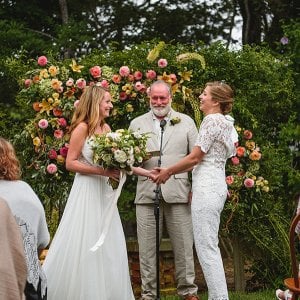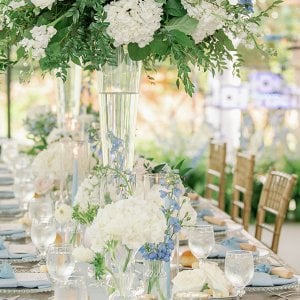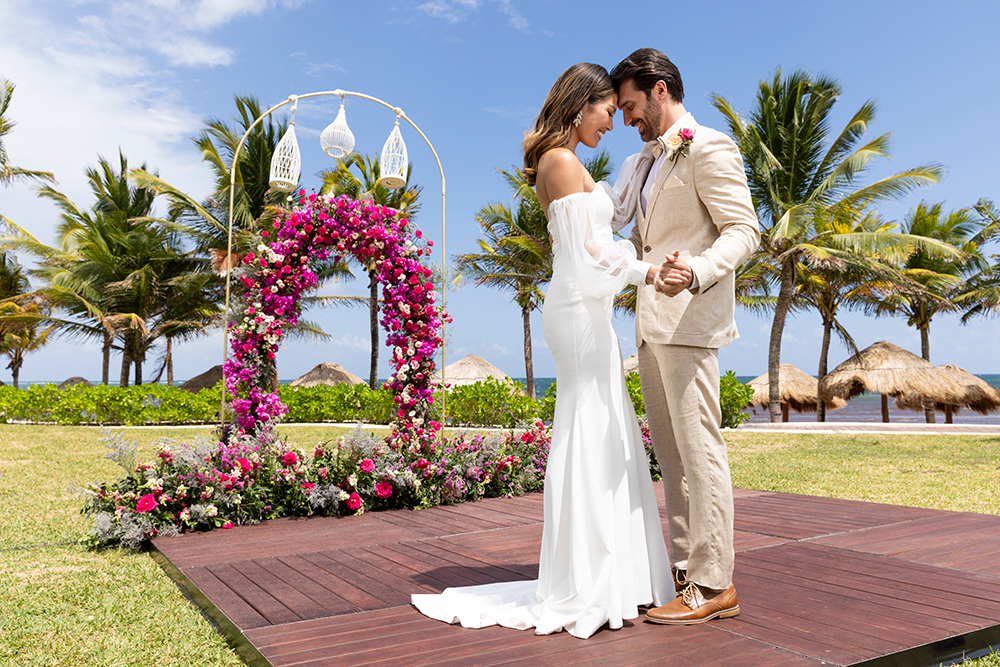A courthouse wedding is an intimate, budget-friendly option for couples wanting to let go of a traditional wedding. Plan it with our step-by-step guide.
By: Rachel Capo— SPONSORED FEATURE —
via Freepik
Whether you don’t want to incur the hefty costs and planning complexities of a traditional wedding or you're just looking for an intimate option, a courthouse ceremony is a great choice. Plus, you can also include all of your favorite elements of the traditional wedding. From a stunning dress to professionally done makeup and a chic bridal squad, this nontraditional wedding allows for everything you’ve ever wanted on your special day. However, there are still some logistics and pre-planning involved. Below, find a step-by-step guide on how to plan your courthouse nuptials.
1. Pick Your Location
The first step in planning a courthouse wedding is to pick the municipal building where you want to get married. It can be the district courthouse, state courthouse, city hall, or any other government-owned property where civil marriage ceremonies are held! Some couples also choose a venue that holds a special significance. It can be a courthouse in a city where they first met, where they first bought a house, or from the location they'd like to start their honeymoon and magical first few married memories together.
2. Choose A Date
Depending on the city and venue you’ve chosen, there can be a waiting period before you can secure a date in advance. In some cases, you may have to go down the city hall and wait for your turn to get married. Another thing to note is that there can also be some restrictions on the time of the day when the ceremony can be hosted depending on the availability of the officiant. Securing a weekend date can also be challenging because most courthouses and city halls only operate from Monday to Friday.
3. Budget Your Courthouse Wedding
via Freepik
Courthouse weddings cost less than a traditional wedding, but the budget can add up quickly if you're not careful. Maybe you have decided to splurge on a designer outfit, an expensive dinner or a decked-out bridal party, these details can quickly add up to the cost. Budgeting is an essential step and can be easily missed for courthouse nuptials. After you have picked your location and date, sit down and narrow down all the details and their associated costs. Once you have an estimate, pick the areas where you can afford to splurge a little.
4. Research Marriage License Requirements
The next step is to research marriage license requirements and apply for it. Even though the formalities will vary by jurisdiction, some common things you will need are your government ID, divorce papers (if any party has been married before), and payment for the license. Two important things to remember are marriage licenses expire (so you need to pick a date within their validity) and there can be a waiting period (for example, you can get married only after a certain number of days once the license is issued).
5. Hire a Photographer (& Videographer)
via Unsplash
A talented photographer, and videographer, can help you capture the memories of your union and look back at it fondly. In candid moments or planned portraits, a skilled photographer with expertise in courthouse weddings is aware of the angles, moments, and emotions to record memories tangibly. If you find a photographer (or videographer) who has already shot in your chosen hall, then that’s an added benefit because they already know all the good locations around and can whisk you away for portraits with ease.
6. Wear The Dress Of Your Dreams
A voluminous gown or a sweeping trail might look a bit extra, but anything other than that is appropriate for a courthouse wedding. Whether it’s a lace gown with a plunging neckline or an off-shoulder satin silk dress, let your Pinterest board come alive on your wedding day. Don’t want to wear a classic white gown? A floral designer dress or a pantsuit works just as well. Now that you’re saving on a big party, you might also want to splurge on a luxury accessory like shoes or a watch to wear with the outfit. It will serve as a gentle reminder of this beautiful day whenever you put it on later.
7. Invite Your Nearest & Dearest
You can have the ceremony with “just” you two, but you can also choose to have some of your closest family & friends invited. Unlike a traditional wedding, the guest list for a courthouse wedding isn’t one that fits into societal norms, but one that has the people who you genuinely love, care for, and admire, and vice-versa! Once the list is ready, see if there are any restrictions to how many people can be inside the city hall. The rest of the party can join later or wait outside to give a grand welcome for the Mr. & Mrs.
8. Discuss How You Want To Celebrate
A courthouse wedding will be over in about 15 to 30 minutes, add an hour or two more for portraits, and then, you will be free! That’s why it’s important to discuss beforehand how you want to celebrate. Maybe you want to jet off straight for a killer honeymoon, treat yourself to a spa in a luxury B&B, have a bonfire with your closest family & friends, or throw a grand reception party. There’s no right choice here. Just choose whatever brings you & your partner joy and helps seal unforgettable memories of this special day!
9. Incorporate Personal Touches
via Unsplash
A simple, small wedding still allows you to incorporate personal touches. You can play a song that has held a special meaning for you, even if it's quirky. You can include flowers in your wedding bouquet which your partner has brought you on special occasions. You can do meaningful readings at the ceremony. The options are endless. One of the benefits of a courthouse wedding is you don’t have to worry about the guest experience. You can include details that will bring you happiness - hence, reinforcing the significance of your wedding day.
10. Have A Checklist Ready for the Big Day
Lastly, create a courthouse wedding checklist so you don’t forget anything when you head out on the main day. Some important things to include on the checklist are the IDs, associated paperwork, marriage licenses, and government IDs of witnesses (if they are required by the state). Rest, you can add your customized elements. This can be the wedding vow paper, your “something blue”, special marriage ring boxes, calling transportation agents, etc. Have a joint PDF on Canva so both you and your partner can keep a tab on these essential items.







